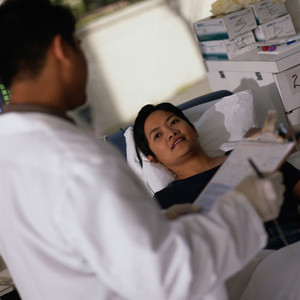The International Alliance of Patients’ Organizations (IAPO), which comprises over 200 patient groups and represents the interests of patients worldwide, has published an Information and Advocacy Toolkit on Biological and Biosimilar Medicines for Patients’ Organizations. The Toolkit, published in November 2013, provides up-to-date, evidence-based information on the science, technology and regulatory information relevant to biologicals and biosimilars.
The document follows an online consultation with IAPO members to understand the level of awareness of biologicals and biosimilars, their regulation and use, and the issues and concerns that patients’ organizations found most important. Raising patient awareness is essential, since the acceptance of generics substitution worldwide has been slow, with research showing that many patients get confused or feel apprehensive about having their drugs changed [1].Topics covered in the toolkit include the safety of biologicals, how they are regulated and monitored, how they are prescribed and dispensed, who can access them and what information and support is available to patients.
IAPO found varied awareness of biosimilars among respondents. Most (54%) of the patients’ organizations represented patients who were currently using biologicals, and 20% represented patients who were using biosimilars. Most respondents had no (36%) or some (32%) awareness of how biosimilars were regulated in their country or region.
Ensuring the safety of biosimilars is an important issue for patients’ organizations. Safety includes a broad range of issues from how biosimilars are defined and named, to their ability to cause immune reactions, regulation and pharmacovigilance.
Pharmacovigilance is critical in ensuring the safety of all medicines. As all biologicals can potentially cause an immune response after approval, surveillance and monitoring are essential to track any adverse effects caused by the medicine [2]. Automatic substitution of approved biosimilars by the pharmacist without notifying the patient and physician/healthcare provider, for example, would circumvent pharmacovigilance, putting patient safety at risk [3], as could prescribing medicines using only the brand name.
IAPO’s online consultation revealed that 50% of respondents had some to high awareness of the pharmacovigilance system in their country while 33% had little awareness and 19% had no awareness at all. A number of patients’ organizations from both developed and developing countries highlighted the importance of a strong pharmacovigilance system, and how this was lacking in their countries.
IAPO believes that ensuring access to high quality, safe and efficacious biological and biosimilars depends on education of patients, doctors and health authorities. Stringent regulatory guidelines will be key to ensuring patient safety.
Related article
Biosimilars: what physicians need to know
References
1. Håkonsen H, Toverud E-L. A review of patient perspectives on generics substitution: what are the challenges for optimal drug use. Generics and Biosimilars Initiative Journal (GaBI Journal). 2012;1(1):28-32. doi:10.5639/gabij.2012.0101.008
2. Schellekens H. How similar do ‘biosimilars’ need to be? Nat Biotechnol. 2004;22(11):1357-9.
3. Wyatt JS. Legislative efforts to limit prescription information sharing between patients and healthcare providers represent a serious threat to the health and safety of the American nation. Generics and Biosimilars Initiative Journal (GaBI Journal). 2013;2(4):165. doi:10.5639/gabij.2013.0204.045
Permission granted to reproduce for personal and non-commercial use only. All other reproduction, copy or reprinting of all or part of any ‘Content’ found on this website is strictly prohibited without the prior consent of the publisher. Contact the publisher to obtain permission before redistributing.
Copyright – Unless otherwise stated all contents of this website are © 2014 Pro PharmaCommunications International. All Rights Reserved.








 0
0











Post your comment